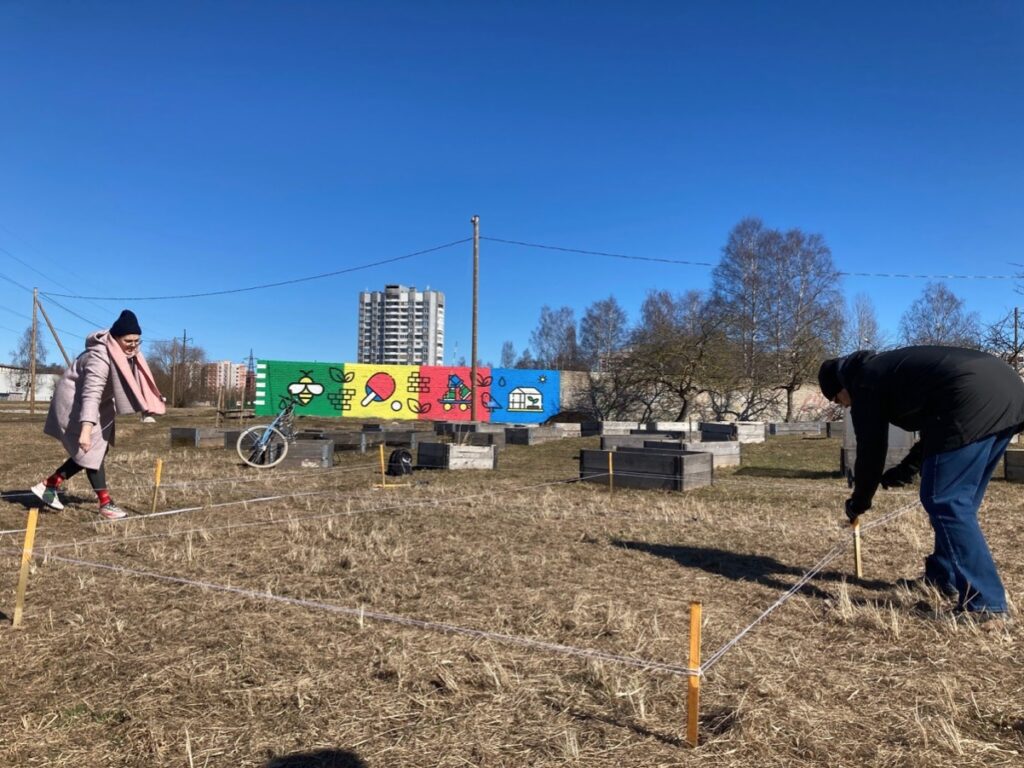Pilot site in Tallinn
Putukaväil – Pollinator Highway is a 13,5 kilometers long green corridor between districts in Tallinn. From Telliskivi Creative City all the way to Hiiu, the Pollinator Highway is developed into a linear park that is defined by biodiversity and urbanisation. B.Green supports the development of Pollinator Highway with the guiding principle of preserving and enhancing biodiversity while offering the local residents a space for outdoor activities and sustainable means to move from one green area to another.
Local activities are coordinated by the City of Tallinn Strategic Management Office.
In collaboration: Tallinn Urban Planning Department, Tallinn Environment and Public Works Department, Tallinn City Districts, Tallinn Beekeepers Society, Estonian Academy of Arts.

Allotment Gardens
B.Green pilots allotment gardening which is a new concept in Tallinn. In the pilot, residents of Tallinn can rent a garden plot of approximately 25 m2 for a symbolic sum and grow plants for personal consumption. While offering a number of benefits for people and nature’s wellbeing, urban allotment gardens also diversify public spaces and promote environmental education. The primary target groups of allotment gardens are families with children, the elderly and the economically disadvantaged Tallinners who do not own a private garden. In a broader sense, all residents are welcome to participate.

Repurposing Powerline Masts
Repurposed high voltage line masts form the axis of the Pollinator Transmission towers carrying high voltage lines form the axis of the Pollinator Highway. Although power lines are now put underground, some masts will be preserved as landmarks to remind of the area’s history. In cooperation with the architecture department of the Estonian Academy of Arts, new architectural forms and possibilities for materials are explored. The concept aims to find new solutions to transform the masts into landmarks while integrating smart solutions that support their versatile future uses.








